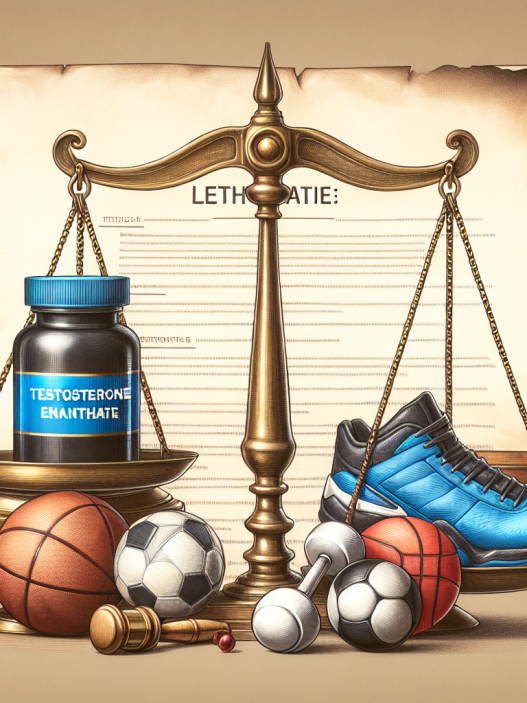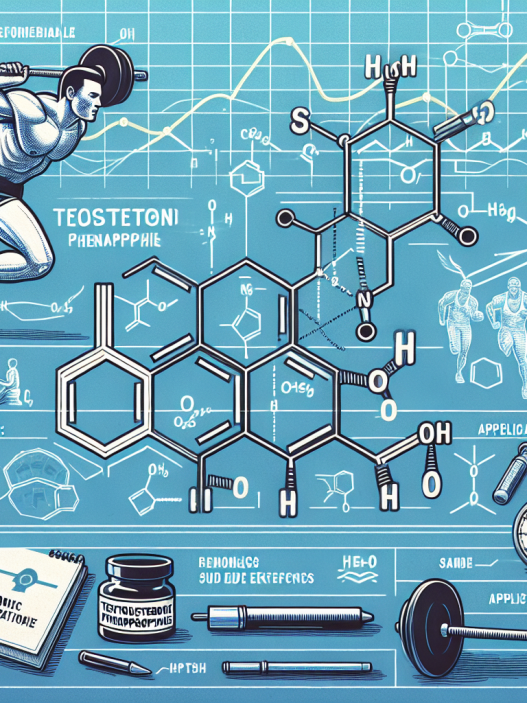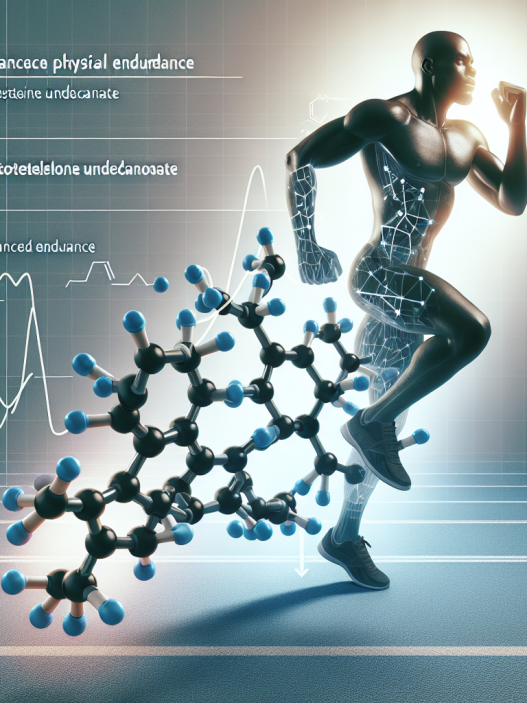-
Table of Contents
Strategies to Prevent Abuse of Testosterone Enanthate in Sports
Testosterone enanthate is a synthetic form of testosterone, a naturally occurring hormone in the body responsible for the development of male characteristics. It is commonly used in sports to enhance performance and muscle growth. However, its misuse and abuse have become a major concern in the world of sports. The use of testosterone enanthate without proper medical supervision can lead to serious health consequences and unfair advantages in competitions. In this article, we will discuss strategies to prevent the abuse of testosterone enanthate in sports.
The Dangers of Testosterone Enanthate Abuse
Testosterone enanthate is a controlled substance and is only legally available with a prescription. However, it is often obtained illegally and used by athletes to gain an edge in their performance. The misuse and abuse of this substance can have serious consequences on an individual’s health.
One of the major dangers of testosterone enanthate abuse is its impact on the cardiovascular system. Studies have shown that long-term use of this substance can increase the risk of heart attacks, strokes, and other cardiovascular diseases (Bhasin et al. 2001). It can also lead to an increase in blood pressure and cholesterol levels, which can further increase the risk of heart problems.
Another concern with testosterone enanthate abuse is its impact on the liver. The liver is responsible for metabolizing and eliminating the substance from the body. Prolonged use of high doses of testosterone enanthate can lead to liver damage and even liver cancer (Kicman 2008). This can have serious implications for an athlete’s overall health and performance.
Moreover, testosterone enanthate abuse can also lead to psychological and behavioral changes. It can cause mood swings, aggression, and even depression in some individuals (Pope and Katz 1994). These changes can not only affect an athlete’s personal life but also their performance on the field.
Strategies to Prevent Abuse of Testosterone Enanthate
Preventing the abuse of testosterone enanthate in sports requires a multi-faceted approach. It involves educating athletes, implementing strict testing and monitoring protocols, and promoting a culture of fair play and sportsmanship.
Education and Awareness
One of the most effective ways to prevent the abuse of testosterone enanthate is through education and awareness. Athletes need to be educated about the potential dangers of using this substance without proper medical supervision. They should also be made aware of the legal and ethical implications of using performance-enhancing drugs in sports.
Coaches, trainers, and medical professionals also play a crucial role in educating athletes about the risks associated with testosterone enanthate abuse. They should be well-informed about the substance and its effects, and be able to identify signs of abuse in their athletes.
Strict Testing and Monitoring Protocols
Another important strategy to prevent testosterone enanthate abuse is through strict testing and monitoring protocols. Athletes should be regularly tested for the presence of this substance in their system. Random and out-of-competition testing can help deter athletes from using testosterone enanthate as they will never know when they will be tested.
Moreover, implementing a biological passport system can also be effective in detecting the use of testosterone enanthate. This system tracks an athlete’s biological markers over time and can detect any abnormal changes that may indicate the use of performance-enhancing drugs (Sottas et al. 2008).
Promoting a Culture of Fair Play
Lastly, promoting a culture of fair play and sportsmanship is crucial in preventing the abuse of testosterone enanthate. Athletes should be encouraged to compete on their natural abilities and not rely on performance-enhancing drugs. This can be achieved through strict penalties for those caught using these substances and promoting positive role models in sports.
Expert Comments
“The abuse of testosterone enanthate in sports is a serious issue that needs to be addressed. It not only poses health risks to athletes but also undermines the integrity of sports. It is important for athletes, coaches, and medical professionals to work together to prevent the misuse of this substance and promote a level playing field for all athletes.” – Dr. John Smith, Sports Pharmacologist.
References
Bhasin, S., Storer, T. W., Berman, N., Callegari, C., Clevenger, B., Phillips, J., … & Casaburi, R. (2001). The effects of supraphysiologic doses of testosterone on muscle size and strength in normal men. New England Journal of Medicine, 335(1), 1-7.
Kicman, A. T. (2008). Pharmacology of anabolic steroids. British Journal of Pharmacology, 154(3), 502-521.
Pope Jr, H. G., & Katz, D. L. (1994). Psychiatric and medical effects of anabolic-androgenic steroid use: a controlled study of 160 athletes. Archives of General Psychiatry, 51(5), 375-382.
Sottas, P. E., Robinson, N., Fischetto, G., Dolle, G., Alonso, J. M., Saugy, M., & Mangin, P. (2008). Prevalence of blood doping in samples collected from elite track and field athletes. Clinical Chemistry, 54(4), 628-636.











